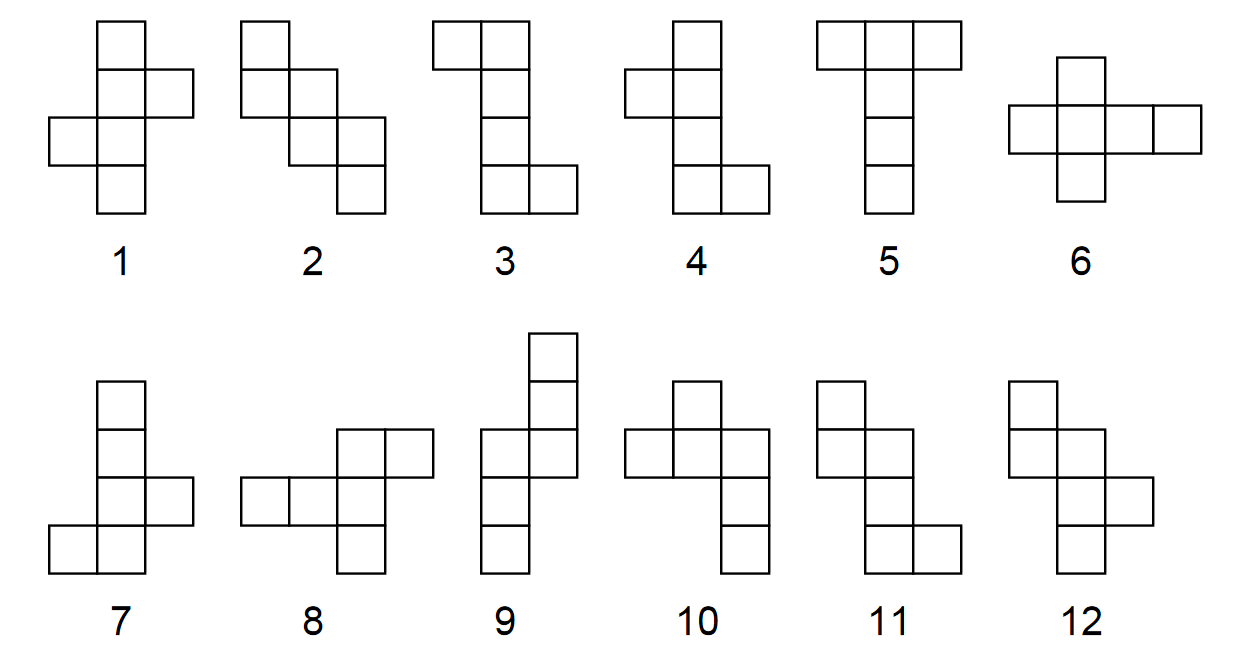Problems
Which triangle has the largest area? The dots form a regular grid.
What is the ratio between the red and blue area? All shapes are semicircles.
A circle was inscribed in a square, and another square was inscribed in the circle. Which area is larger, the blue or the orange one?
Replace the letters with digits in a way that makes the following sum as big as possible: \[SEND +MORE +MONEY.\]
Jane wrote another number on the board. This time it was a two-digit number and again it did not include digit 5. Jane then decided to include it, but the number was written too close to the edge, so she decided to t the 5 in between the two digits. She noticed that the resulting number is 11 times larger than the original. What is the sum of digits of the new number?
a) Find the biggest 6-digit integer number such that each digit, except for the two on the left, is equal to the sum of its two left neighbours.
b) Find the biggest integer number such that each digit, except for the rst two, is equal to the sum of its two left neighbours. (Compared to part (a), we removed the 6-digit number restriction.)
Does there exist an irreducible tiling with \(1\times2\) rectangles of a \(4\times 6\) rectangle?
Irreducibly tile a floor with \(1\times2\) tiles in a room that is a \(5\times8\) rectangle.
Tile the whole plane with the following shapes:

David Smith cut out 12 nets. He claimed that it was possible to make a cube out of each net. Roger Penrose looked at the patterns, and after some considerable thought decided that he was able to make cubes from all the nets except one. Can you figure out which net cannot make a cube?
